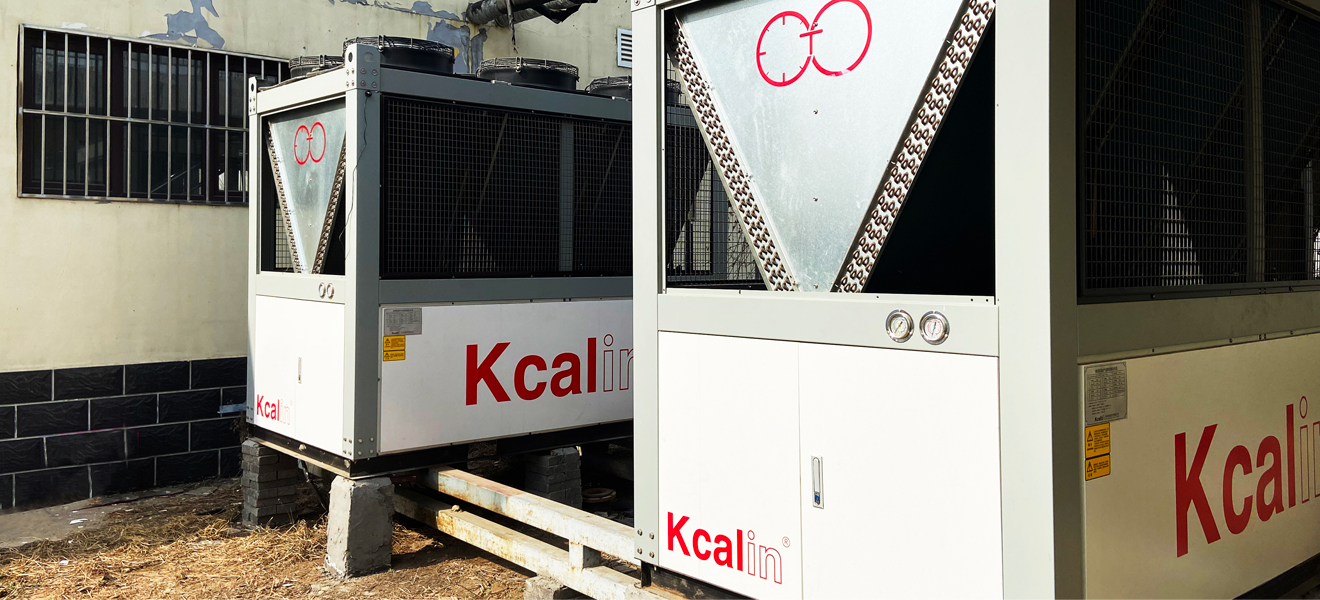The air source heat pump system has the following main characteristics:
Flexibility: Air source heat pump systems can flexibly adapt to different application scenarios and needs. It can provide multiple functions such as heating, cooling, and hot water simultaneously, and is suitable for various fields such as residential, commercial buildings, industry, and agriculture. The capacity of the system can be adjusted according to demand to meet the heat demand of different scales.
Efficient and energy-saving: Air source heat pump systems have the characteristics of high-efficiency and energy-saving. It utilizes the free thermal energy in the environment, that is, the thermal energy in the air, to transfer heat through a heat pump cycle. Compared to traditional heating and cooling methods, air source heat pump systems can achieve energy efficiency of up to 300% to 500%, which means that for every 1 unit of electrical energy consumed, they can provide 3 to 5 units of thermal energy. This gives air source heat pump systems significant advantages in energy utilization.
Environmental friendliness: Due to the utilization of heat energy from outdoor air for heating and cooling, the air source heat pump system does not generate direct combustion processes and does not emit harmful gases and pollutants during operation. Compared to traditional gas boilers or resistance heaters, air source heat pump systems have less impact on the environment and are more in line with environmental requirements.

Low operating cost: Although the initial investment of the air source heat pump system is relatively high, due to its efficient and energy-saving characteristics, the operating cost is relatively low. Being able to utilize free thermal energy in the environment, reduce dependence on traditional energy, and thus reduce energy consumption and related costs. In addition, with the increase in energy prices and the promotion of energy policies, the operating costs of air source heat pump systems will further decrease.
Comfort: The air source heat pump system can provide a comfortable indoor environment. By using a heat pump cycle, it can provide stable heating and cooling effects, and can automatically adjust temperature and humidity to meet people's needs for a comfortable environment. In addition, there is almost no noise and vibration when the air source heat pump system operates, which improves the comfort of the indoor environment.
The effectiveness of air source heat pump systems in providing comfort and energy efficiency depends on various factors, including system design, installation quality, environmental conditions, and usage methods. However, overall, air source heat pump systems do have the potential to provide comfort and energy efficiency. Here are some reasons to support this viewpoint:
Balanced heating and cooling: The air source heat pump system can provide balanced heating and cooling effects, maintaining stable indoor temperature. They have the function of automatic adjustment, and can carry out intelligent control according to the indoor temperature demand to ensure a comfortable indoor environment.
Efficient and energy-saving: Compared to traditional heating and cooling equipment, air source heat pump systems have higher energy utilization efficiency. By utilizing the free thermal energy in the environment, they can provide the same heating and cooling effects with lower energy consumption. This helps to reduce energy costs, save energy resources, and reduce negative impacts on the environment.
Renewable energy integration: Air source heat pump systems can be integrated with renewable energy, such as solar photovoltaic systems or wind power generation systems. These renewable energy sources can provide power supply for heat pump systems, further reducing reliance on traditional energy sources and achieving higher energy sustainability.
Adapt to various climatic conditions: Air source heat pump systems are suitable for operation under various climatic conditions. Whether in cold winter or hot summer, they can provide reliable heating and cooling effects. Even in low-temperature environments, air source heat pump systems can maintain good performance through the use of technology and refrigerants.
Quiet and low vibration: The operation of air source heat pump systems is usually relatively quiet, resulting in lower noise and vibration. This helps to provide a comfortable indoor environment and reduce the interference of noise to residents.
However, to achieve good comfort and energy-saving effects, the following factors need to be considered:
System design and scale: The system should be designed based on the size, needs, and characteristics of the building, and ensure appropriate capacity and circulation methods.
Installation quality: Correct installation and debugging are the key to ensuring the normal operation of the system. Qualified installation professionals should install, debug, and maintain the system in accordance with regulations to ensure its performance and effectiveness.
Maintenance and upkeep: Regular maintenance and upkeep of the air source heat pump system is crucial for maintaining its efficient operation. This includes cleaning the filter, checking and cleaning the heat exchanger, checking the refrigerant charge, and so on. Reasonable maintenance measures can extend the service life of the system and maintain its good performance.
Usage and control: Reasonable usage and control strategies are crucial for achieving comfort and energy-saving effects. Users should set appropriate temperatures and operating modes based on their actual needs to avoid excessive heating or cooling, as well as prolonged unnecessary operation.
Although air source heat pump systems have the potential for comfort and energy conservation, their actual effectiveness is influenced by the above factors. Each application scenario has its own conditions and requirements, so when selecting, designing, and using an air source heat pump system, various factors should be fully considered, and professional guidance and advice should be sought.







Comment